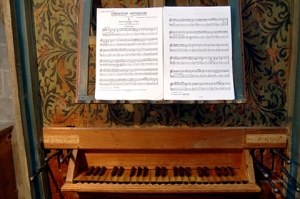Whenever a defense is advanced for something like the historic Reformed understanding of the rule of worship one of the objections that regularly arises is this: if musical instruments are being used in Scripture, we may we not use them now in . . . Continue reading →
Heidelcast 119: I Will Be A God To You And To Your Children (14)
This series has really been about how to interpret Scripture. Christians study the same Bible, but we often read it differently. Sometimes we begin with different assumptions about the nature of things and authority. These different methods and starting points lead to . . . Continue reading →













